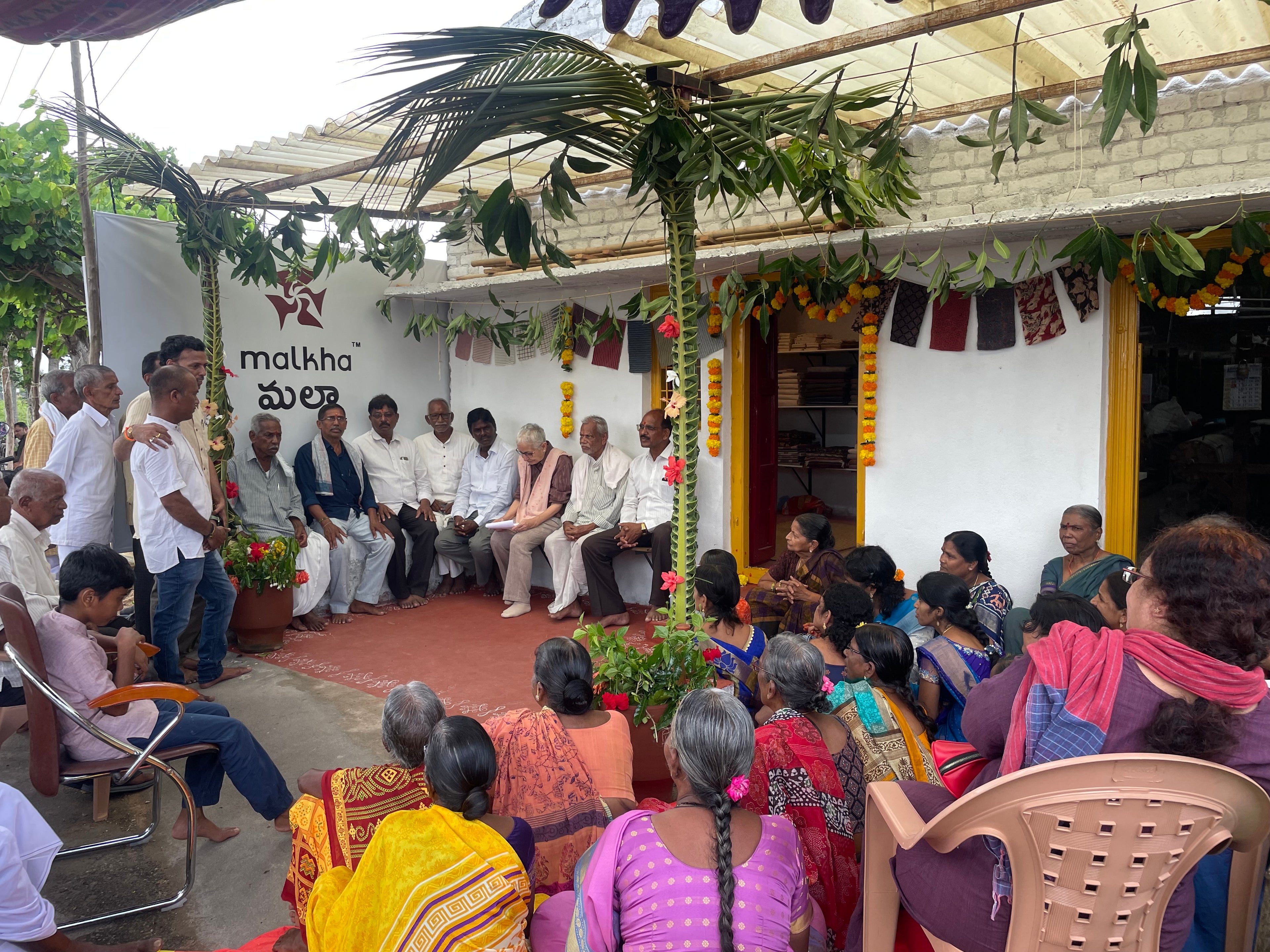
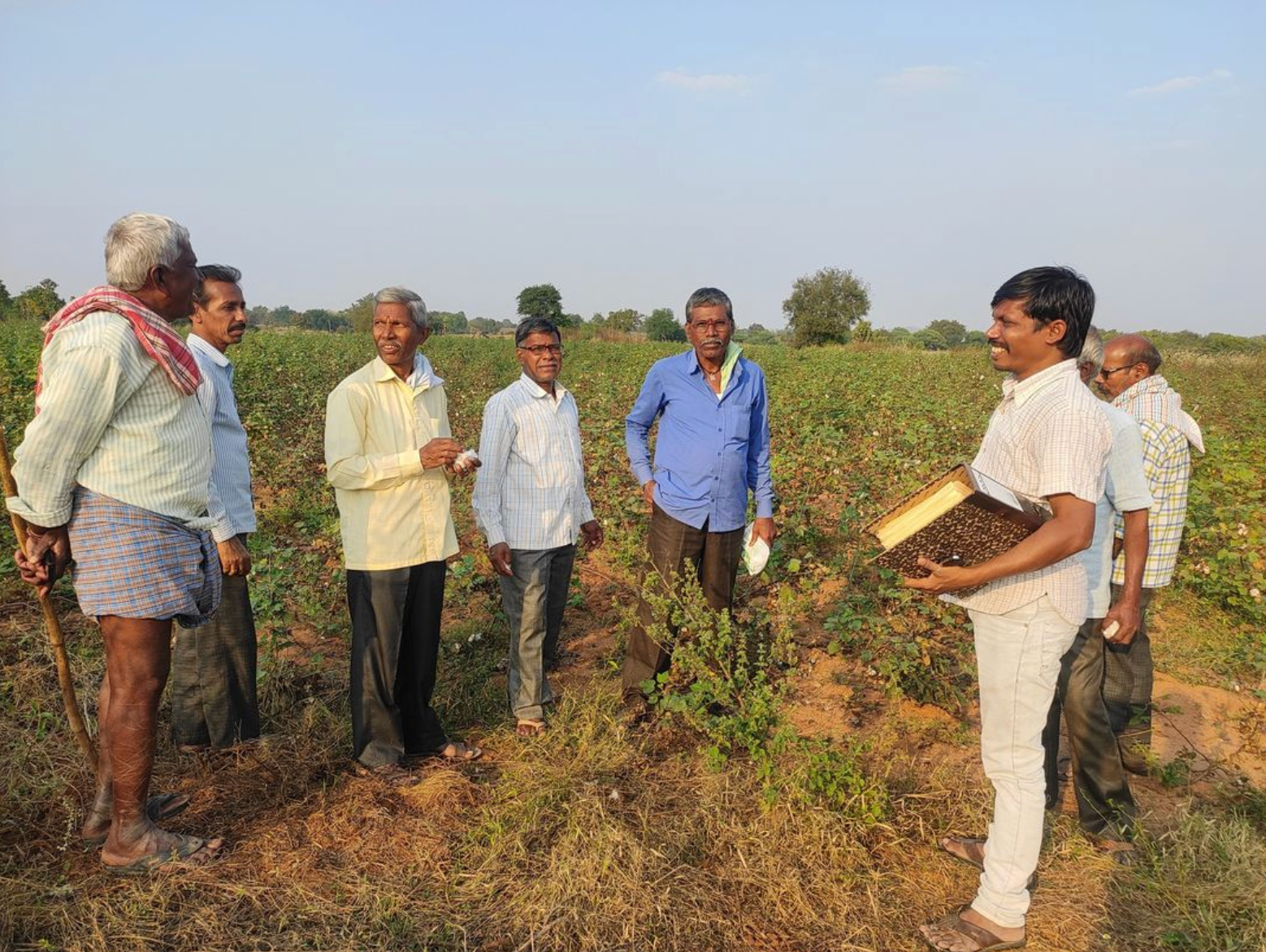
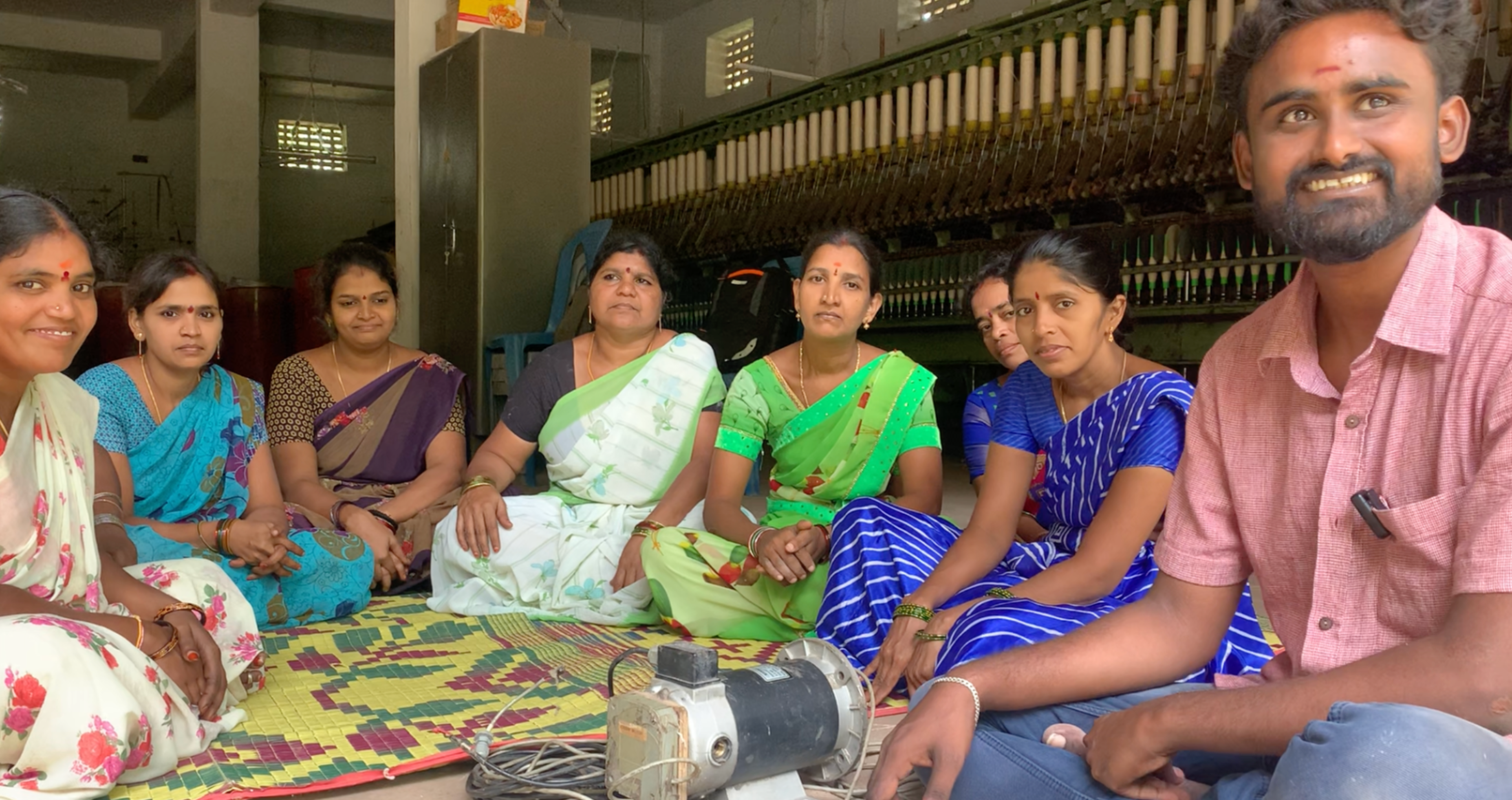
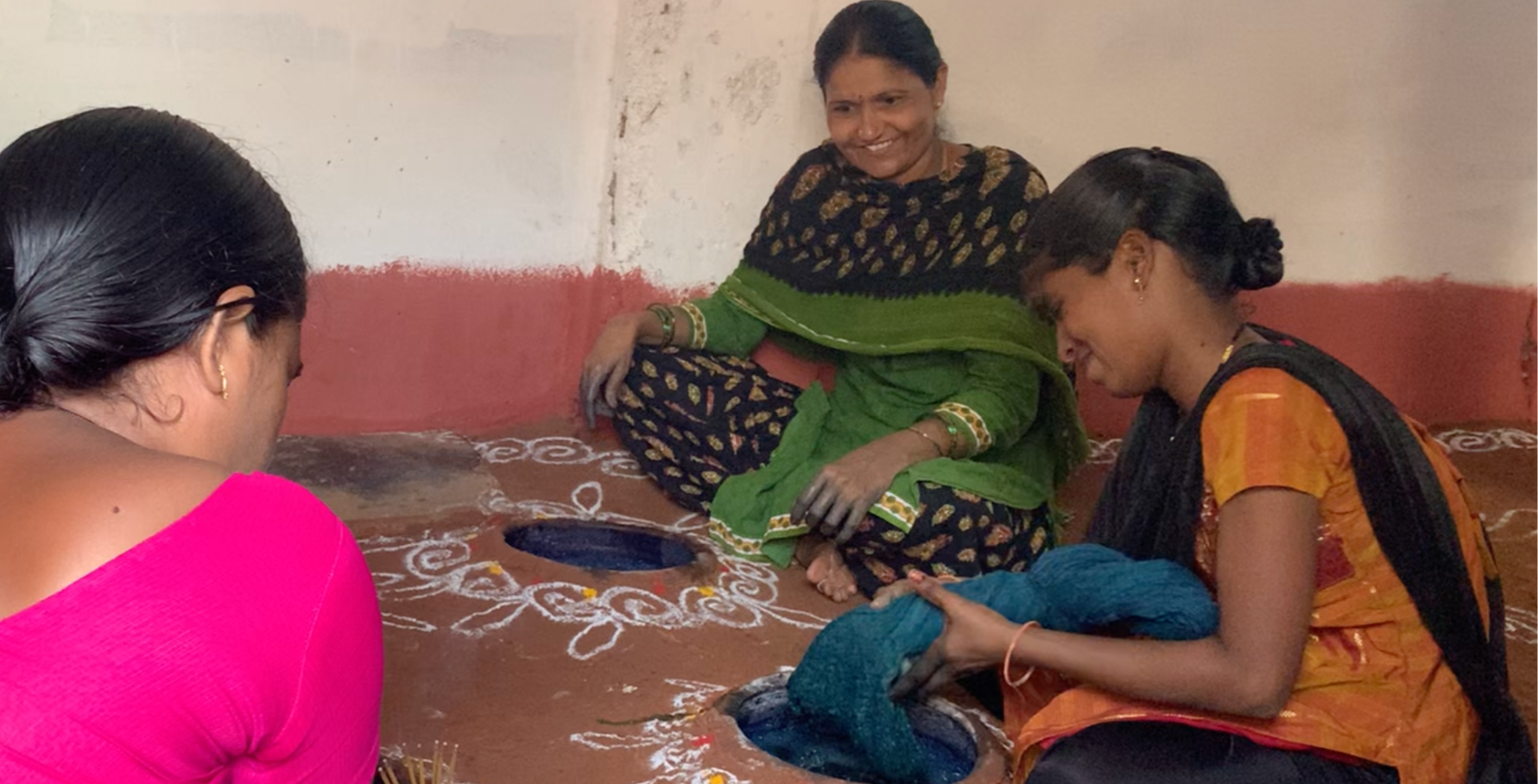
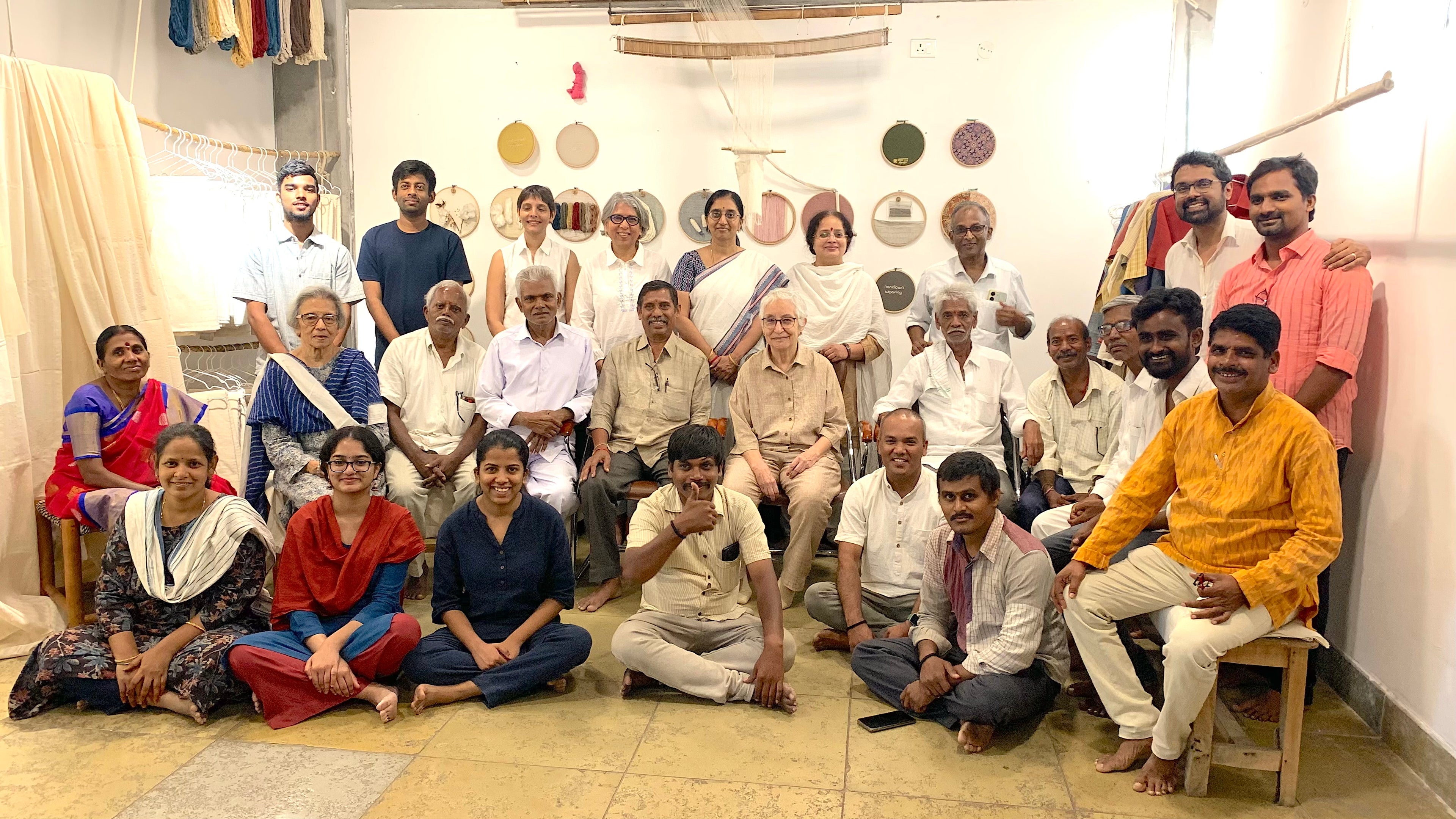
making of malkha



people
Organic Cotton Farming
India was the world leader in cotton textiles for thousands of years because of the availability of diverse desi varieties of cotton grown in each region of the country. But the colonial powers forced Indian farmers to grow American long staple cotton variety which was needed for the British spinning mills. Instead, Malkha aims to link local organic cotton farming with a compatible scale of yarn-spinning to form integrated cotton handloom weaving networks.
Jangaon Aadharsa Enabavi Farmers FPO
B Giri Babu
T Raghava Reddy
M Yadaiah
B Sujatha
B Yadagiri
B Savitri
Y Veera Swamy
P Srinu
G Rajashekar
Advisors
Poludas Nagendra Satish
Rajashekar G
Dr. Ramanjaneyulu GV - Centre for Sustainable Agriculture
Decentralised Spinning
Malkha yarn is spun in small-scale spinning mills that are capable of handling diverse cotton varieties as well as short to medium staple lengths. Malkha eliminates the baling and unbaling of cotton lint, introduced by the colonizers, and in doing so retains the natural elasticity and dye-holding capacity of cotton in the hand- woven fabric. That is why Malkha fabrics keep their shape, have better insulation,are springier, more absorbent, hold colour better, in other words, retain the natural good qualities of cotton.
Pulagurtha HWCS Spinning Unit Operators
Satyaveni K
Durga Devi N
Satyaveni T
Veeravenni B
Satyaveni J
Lovakumari T
Gowri U
Venkata Laxmi B
Venkata Padmavati B
Chief Spinning Engineer
Nulu Durga Manikanteswara Rao
Advisor
Medathati Jagannadha
Natural Dyeing
The dye colours used in Malkha are sourced from natural raw materials (Myrobalan (harad)mordants, Madder, pomegranate peel, and many more). The most important of these is Indigo, dyed in traditional vat fermentation process. Natural colours are healthy for our body and the environment.
Neeli Dye House, NIRD Dyers
Shyamala
Kavitha
Anjamma (late)
Advisors
Odelu Vurugonda
Salim Mohammed Pasha (late)
K. V. Chandramouli (late)
Yellappa (late)
Handloom Weaving
Malkha empowers weavers to design their own textiles and take ownership of their knowledge. Malkha looms use traditional jowar millet reeds to allow for the slub variations of Malkha yarn. The dedication of the hank sizers, winders, warpers and loom setters working in tandem with handloom weavers results in the unique texture of Malkha fabric.
Thangalapalli Weft Winders
Dasari Bhulaxmi
Gajula Bhulaxmi
Gajvelli Rajeswari
Kandagtla Subadra
Kodem Krishna Hari
Kokkula Ellavva
Virabathini Gouravva
Kodem Nagalaxmi
Boora Lalitha
Bhagya Lakshmi
Vemula Devadas
Bura Laxmi
Thangalapalli Warp Winders
Kodem Shankar
Annaldas Pramila
Bandari Jamuna
Bandari Vimala
Bura Bhagyalaxmi
Chityala Rajavva
Kodem Pramila
Kodem Latha
Kodem Susheela
Macha Laxmi
Macha Rajavva
Sabbani Nirmala
Siripuram Laxmi
Thatikonda Laxmi
Thangalapalli Warpers
Bandari Narsaiah
Boora Laxmi Narsaiah
Mamidala Bhumaiah
Thangalapalli Pieceing Helpers
Billi Pentaiah
Kodem Ramesh – Hank Sizing
Thangalapalli Weavers
Annaldas Narayana
Annaladas Narsappa
Bheemani Anandam
Birukuri Anjaneyulu
Bura Lakshmi Narsaiyah
Boora Dasaratham
Dhudugu Shankar
Akkaladevi Mallaiah
Gajavelli Yadagiri
Jakkapalli Ramulu
Konda Krishna Hari
Macha Satyanarayana
Mantri Devadas
Mantri Rajesham
Myana Narayana
Vemula Mallesham
Yadarapu Balaiah
Boora Narayana – Unit Incharge
Advisor (Ikat Tie and Dye)
K. Narasimhalu
Trustees & Management
Malkha’s handloom cloth weaves together the knowledge of farmers, spinners, dyers, winders, warpers, sizers, weavers and many others. When you wear Malkha, you become a part of this knowledge network.
Vaddepalli Dharmendar – Custodian
Prasanna Lakshmi - Financial Analyst
Annapurna – Accounting
R. Narsimha – Operations Manager
P. Srinivas - Sales Manager
Rama Melkote - Trustee
Annapurna Mamidipudi - Trustee
Uzramma – Founding Trustee
